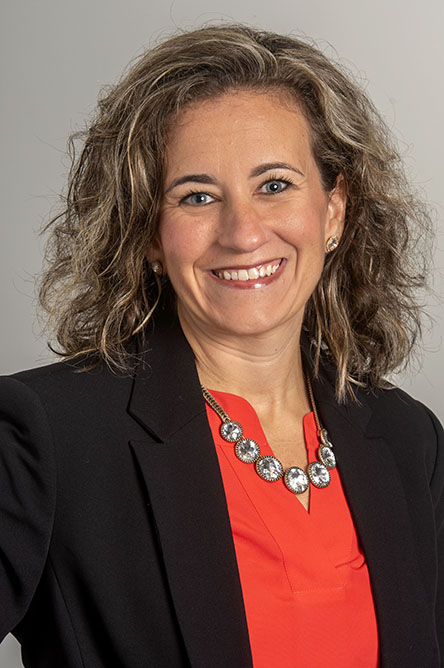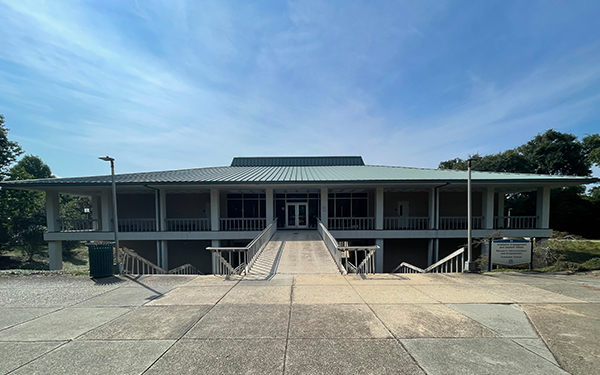Student Ombuds

The role of the Student Ombuds is to serve as a resource and designated impartial party for those who may have a University-related concern or grievance.
Available To All Students
The Student Ombuds serves as an alternate resource for all students to complement other existing channels of communication and conflict resolution. Such problems may be related to grades, a difference of opinion with instructors, an interpretation of university policies, and/or other administrative issues. Students seeking guidance or assistance related to their University of West Florida (UWF) experience – both academic and nonacademic – should contact the Student Ombuds Office via the Submit Your Concern(s) form.
The Student Ombuds Can:
- Listen to your concern
- Clarify university policy
- Answer questions concerning appropriate channels
- Assist with problems that have not been resolved by other offices
- Informally look into your concern
- Make referrals to individuals who can address your concern
- Help define options that are available to you
- Recommend changes to university policy, rules, or procedures that are outdated, unclear, or ineffective
- Open avenues of communication; facilitate conversations
- Offer a SAFE place to discuss your concerns
The Student Ombuds Cannot:
- Advocate for an individual or group
- Provide legal advice or representation
- Assist with a non-university related concern
- Tell someone what to do
- Participate in any investigative procedures
- Engage in matters that are undergoing a formal process
- Accept formal complaints or serve as an office of notice
- Mandate policies, procedures or make binding decisions
Frequently Asked Questions (FAQs)
This office is available to support students’ opportunity for success. The Student Ombuds provides students with an informal, impartial, safe, and confidential place to share concerns or questions, to consider multiple perspectives of an issue, and to explore options for informal resolution.
The Student Ombuds primarily serves currently enrolled undergraduate and graduate students. We can also assist faculty, staff, alumni, previously enrolled students and parents with questions about student-related concerns. The information we can provide about students is limited based on the Family Educational Rights and Privacy Act (FERPA).
If you would like to discuss any of the following, the Student Ombuds is a great point of contact for you:
- You would like to talk confidentially about a university-related situation
- You need help communicating with someone within the University
- You are unsure of the policies or procedures that apply to your specific problem or issue
- You would like to know what resources or options are available
- You want information about how to file a complaint, appeal, or grievance
- You feel a policy or procedure is not being followed properly
- You are not sure where else to turn for help
Confidentiality means that you are free to discuss concerns related to classes, professors, other students, other administrators, departments, etc. without that information leaving the office.
However, there are legal exceptions and University policies that occasionally require staff members to break confidentiality. These primarily entail imminent risk of harm to yourself, others, or a perceived threat to the University. The Student Ombuds is a Mandatory Reporter and must report disclosures related to discrimination, harassment, including sexual assault, and retaliation to appropriate University officials.
Staff members will make every effort to inform you if your case is likely to require a breach of confidentiality. With that being said, rarely does the Student Ombuds need to break the confidentiality of a student.
Confidentiality is a fundamental element of the Ombuds Program. As such, the Ombuds Program is not authorized to accept notice of allegations of violations of law or other formal complaints. The Ombuds Program treats all communications, and the identities of all visitors, as strictly confidential to the maximum extent permitted by law unless, in the discretion of the Ombuds, failure to disclose information would create an imminent risk of serious harm. No employee or other University constituent may compel the Ombuds Program to disclose information.
There are only two areas where students and employees can find confidential assistance:
- For students, Counseling and Psychological Services (CAPS) are the only employees on campus able to provide confidential support.
- For employees, the Employee Assistance Program through Human Resources can provide confidential counselors in the community to provide assistance.
Other community resources can be utilized confidentially and often for free. Check out our page for a full list of free and confidential resources.
- Provide a respectful and comfortable environment for conversation
- Listen to your questions, concerns, and complaints
- Help gather information about potential options and appropriate resources
- Suggest connecting with individuals or offices with expertise in a specific area
- Clarify university policy and procedure
- Address questions concerning appropriate academic or administrative channels
- Open avenues of communication
- Share information about how to file a formal complaint, appeal, or grievance
- Track trends and common areas of concern
No, the Student Ombuds does not take sides. Because one of the Student Ombuds’ core operating principles is impartiality, the ombuds is not a student advocate. The ombuds works to evaluate an issue from all sides and to explore solutions in an impartial manner in effort to find a satisfactory resolution to the concern.
Due to our informal and impartial role, we do not advocate for or represent any individual or group, nor do we accompany visitors in meetings or proceedings or attend meetings/proceedings as an impartial witness. We can, however, provide consultation and coaching on effective communication and conflict management strategies as you prepare for the meeting, and/or provide confidential and informal mediation/facilitation at the meeting if all parties are in agreement.
The Student Ombuds does not maintain any permanent records. In accordance with Ombuds ethics and standards of practice, only non-identifying statistical information and trends are reported, which help to inform positive change efforts including improvements to university policies and practices.
No. The Student Ombuds is an informal resource. The goal is that the informal process can address the concerns before it goes through the formal grievance process or is addressed by an attorney.
International Ombudsman Association
The Student Ombudsperson at the University of West Florida is a member of the International Ombudsman Association (IOA), the premier professional association in the United States for organizational ombuds. IOA's mission is to support and advance the global Organizational Ombudsman profession and ensure that practitioners work to the highest professional standards.
UWF's Ombuds Office adheres to the IOA Standards of Practice and Code of Ethics. Links to IOA's Home Page, Standards of Practice, and Code of Ethics appear below:
-
 Lauren Loeffler
Lauren LoefflerAssistant Vice President, Strategic Initiatives and Divisional Operations, Student Ombuds
-
 Lindsey Walk
Lindsey WalkSenior Director, Career Development and Community Engagement, Deputy Student Ombuds



